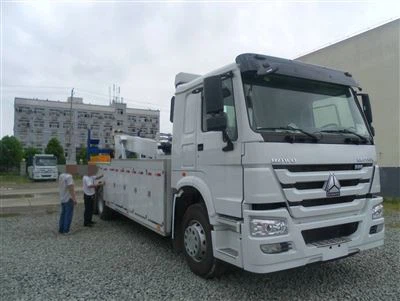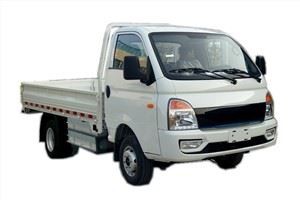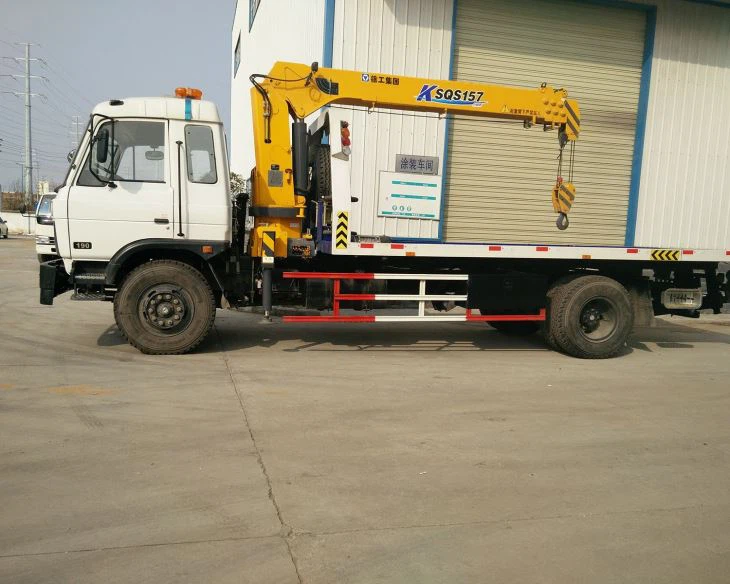Sewer Vacuum Truck for Sale: A Comprehensive Guide

Are you considering purchasing a sewer vacuum truck for your business? Whether you are involved in municipal services, construction, or maintenance, understanding the features, benefits, and options available in the market is crucial. This article provides all the essential information you need to guide your purchase decision and ensure you get the right sewer vacuum truck for your requirements.
What is a Sewer Vacuum Truck?
A sewer vacuum truck, also known as a vacuum tank truck or suction truck, is a specialized vehicle designed for the collection, transportation, and disposal of liquid waste, debris, and sludge. Equipped with a powerful vacuum system, these trucks are vital for maintaining municipal sewer systems, managing industrial waste, and performing various environmental cleanup tasks.
Key Features of Sewer Vacuum Trucks
1. Vacuum System
The heart of any sewer vacuum truck is its vacuum system. It typically consists of a high-performance vacuum pump capable of creating a substantial vacuum pressure, allowing the truck to suck up liquid waste from sewers and other locations efficiently.
2. Storage Tank
Sewer vacuum trucks come with a large storage tank designed to hold collected waste. Tank capacity can range from 500 to 3,000 gallons, ensuring that substantial amounts of waste can be transported before needing to discharge.
3. Hose and Nozzle Assembly
The hoses and nozzle assembly enable operators to access hard-to-reach areas. A variety of nozzle types are available, allowing for more effective and versatile operation depending on the task at hand.
4. Hydraulic System
A hydraulic system powers the truck’s lift mechanisms for the tanks and hoses. Properly functioning hydraulics ensure smooth operation when loading and unloading waste.
5. Safety Features
Safety is paramount when working with sewer vacuum trucks. Features such as overflow protection, emergency shutoff valves, and proper ventilation allow for safer waste management operations.
Types of Sewer Vacuum Trucks
1. Class 6 Vacuum Trucks
Class 6 vacuum trucks are lighter vehicles designed for smaller jobs, such as residential sewer cleaning and liquid waste disposal. They typically have lower capacity tanks, around 500 to 1,000 gallons, making them maneuverable for urban settings.
2. Class 7 Vacuum Trucks
Class 7 trucks have a higher capacity and are suitable for larger municipal operations or construction. They often feature a tank capacity of 1,500 to 2,500 gallons, providing the necessary strength for heavier workloads.
3. Class 8 Vacuum Trucks
Class 8 trucks, the heaviest vehicles, are built for industrial applications, including large-scale waste cleanup and extensive sewer inspection tasks. They can hold up to 3,000 gallons and are equipped with robust features to handle challenging environments.
Factors to Consider When Buying a Sewer Vacuum Truck
1. Purpose and Applications
Understanding the primary use of the sewer vacuum truck is essential. Will it be primarily for municipal work, industrial applications, or a mix of both? Defining the primary function will help narrow down your options.
2. Truck Size and Capacity
Evaluate the truck’s size and tank capacity based on operational needs. A smaller truck might be sufficient for urban cleaning jobs, while larger capacities may be necessary for industrial operations.
3. Budget
Establishing a budget upfront will guide purchasing decisions. Consider not only the initial price but also operational costs, maintenance, and potential repairs.
4. New vs. Used Trucks
Decide if you want a new truck with the latest technology or a used truck that may offer significant savings. Each option has its pros and cons; thus, inspecting and testing used trucks is crucial.
5. Manufacturer Reputation
Research various manufacturers in the market. A reputable manufacturer often provides valuable warranties and reliable after-sale support, enhancing long-term ownership experience.
6. Features and Customization Options

Look for essential features that meet your local regulations and operational needs. Customization options like additional hose lengths, extra storage compartments, and specialized nozzles can also be vital.
Where to Buy a Sewer Vacuum Truck
1. Dealerships
Buying from licensed dealerships is one of the safest options. They often provide new trucks, warranty options, and after-sales support, making them convenient for most buyers.
2. Online Marketplaces

Online platforms like eBay, Craigslist, or specialized market sites offer a wide range of new and used vehicles. Ensure you perform due diligence when exploring this option.
3. Auctions
Auction sites may provide good deals on used sewer vacuum trucks. However, inspect the vehicle beforehand if possible to grasp its condition before bidding.
4. Distributors
Independent distributors also sell new and used sewer vacuum trucks. They can often provide financing options, making the purchase more manageable.
Maintenance Tips for Sewer Vacuum Trucks
1. Routine Inspections
Regular inspections will help identify wear and tear before issues escalate. Check the vacuum system, tank seals, and hydraulic systems routinely.
2. Clean the Storage Tank
Keeping the storage tank clean is crucial for preventing contamination. Regularly rinse and disinfect the interior as part of routine maintenance.
3. Monitor Fluid Levels
Watch hydraulic fluid levels, oil, and coolant regularly to ensure the truck operates efficiently. Replace fluids according to the manufacturer’s recommendations.
4. Address Repairs Promptly
Don’t delay repairs. Addressing issues promptly not only preserves the truck’s performance but also enhances its lifespan.
Cost Breakdown of Sewer Vacuum Trucks
| Truck Class | Price Range | Tank Capacity | Common Uses |
|---|---|---|---|
| Class 6 | $50,000 – $90,000 | 500 – 1,000 gallons | Residential sewer cleaning |
| Class 7 | $90,000 – $150,000 | 1,500 – 2,500 gallons | Municipal and commercial services |
| Class 8 | $150,000 – $300,000+ | 2,500 – 3,000 gallons | Industrial applications |
Finding the Right Sewer Vacuum Truck Dealers
1. Local Research
Start your search locally. Visit dealerships and inspect their inventory, reliability, customer service, and available options.
2. Online Reviews
Read online reviews and testimonials. Sites like Google, Yelp, and specialized forums can provide insights into dealers’ credibility.
3. Attend Industry Shows
Attending industry trade shows often allows you to meet professionals and compare different models and specifications directly.
Frequently Asked Questions (FAQs)
1. What is the average lifespan of a sewer vacuum truck?
The average lifespan can vary widely, but with proper maintenance, a sewer vacuum truck can last anywhere from 10 to 15 years.
2. Can I customize my sewer vacuum truck?
Yes, many manufacturers offer customization options based on your specific needs, including tank sizes, hose lengths, and specialized equipment.
3. What is the weight limit for a sewer vacuum truck?

The weight limit will depend on the specific class of truck. Class 6 and 7 trucks are typically limited to 26,000 pounds, while Class 8 trucks have higher capabilities.
4. Are there financing options available for purchasing these trucks?
Yes, many dealerships and distributors offer financing options to help make your purchase more affordable. Be sure to compare interest rates and terms.
5. How do I operate a sewer vacuum truck?
Operating a sewer vacuum truck requires training. Employees must learn how to use the vacuum system, properly load and discharge waste, and maintain safety protocols.
6. Is it legal to operate a sewer vacuum truck in all states?
Yes, it is legal to operate a sewer vacuum truck in all states, but specific operational guidelines and waste disposal regulations may vary. Always check local laws to ensure compliance.
